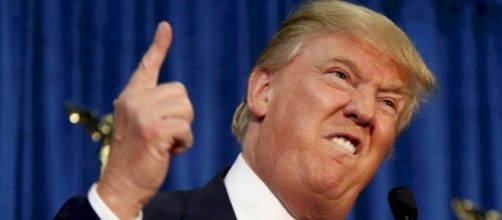President Donald Trump said on ABC News (during his first TV appearance as commander-in-chief) that he is staunchly pro-torture, and seems to equate pro-torture with anti-ISIS. The way he sees it, America's method of dealing with terror suspects should be “to fight fire with fire.” Trump told the news show that he believes the controversial means of acquiring information “absolutely” works.
POTUS wants to lift ban on waterboarding
Over the years, the US government and the CIA have become infamous for torturing suspects, mostly under the Bush administration, with many controversial cases following the September 11 terrorist attacks.
And while Barack Obama got torture banned during his Presidency, Trump seems very eager to bring it back during his. This will be the latest such incident of Trump undoing Obama's legacy piece by piece.
Waterboarding appears to be Trump’s favourite torture technique (or perhaps it is just the one he feels is the most effective). Waterboarding simulates the experience of drowning to get a suspect who potentially holds useful information in a terror investigation to open up and reveal their secrets. ISIS is the group specifically on Trump's mind influencing his stance on torture. He describes the horrific acts of terror carried out by the infamous extremist group as “things that no one has ever heard of since medieval times.”
Waterboarding is a torture method with a rich history.
Historians say that waterboarding has been around for centuries, with the first recorded use being the Middle Ages (or "medieval times," if you will). So, Trump's plan to "fight fire with fire" means fighting medieval execution with medieval torture. Waterboarding continued to be utilised against prisoners throughout World War II, when Japanese soldiers used it against American POWs. While adopting a Japanese torture technique used against American soldiers may seem to contradict "America First," US soldiers have been used waterboarding since the Vietnam War. It is still a part of US military training today, but only in the capacity of training to resist it if they are ever subjected to it by their enemies.
He will listen to his Cabinet
Trump is making the smart move of hearing his Cabinet secretaries out and promises he will “rely on Pompeo and Mattis and my group." James Mattis (Trump's Secretary of Defence) is against the use of torture, and Mike Pompeo (the Director of the CIA) said earlier this month to the Senate that he would “absolutely not” be sanctioning the use of enhanced interrogation methods for President Trump.
Trump displayed his extensive knowledge of the motivations of terrorists during the interview, saying they “chop off the citizens’ or anybody’s heads in the Middle East, because they’re Christian or Muslim or anything else,” and added that “we have that and we’re not allowed to do anything.” Perhaps the CIA should listen to him since he clearly knows what he’s talking about.
‘We’re not playing on an even field’
Trump is also considering the return of torture to the CIA's arsenal as he is frustrated when he sees what ISIS are doing and then looks at US legislation and sees they are, as he puts it, “not allowed to do anything” in response. He believes that the US and the Islamic State are "not playing on an even field,” and intends to do “everything within the bounds of what you’re allowed to do legally.”
The law will stop Trump from using torture, despite what orders he makes, according to Vietnam veteran and tortured POW Senator John McCain. He says that although Trump “can sign whatever executive orders he likes...the law is the law.”
Steve Kleinman, a retired Air Force Colonel who is now the chairman of the research advisory committee to the High Value Detainee Interrogation Group, is worried about the consequences of bringing back torture in terms of national security. He says that if Trump lifts the US ban on torture, the ramifications “would be beyond substantial...they’d be potentially existential.”

